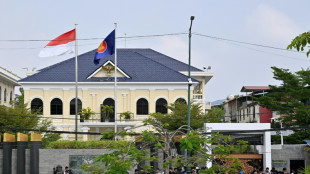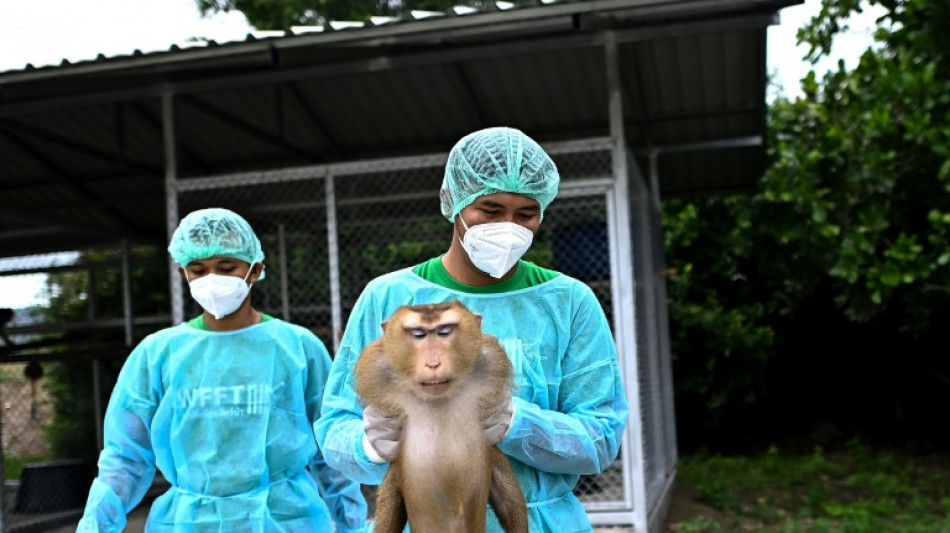
-
 Prince Harry says UK tabloid court battle in 'public's interest'
Prince Harry says UK tabloid court battle in 'public's interest'
-
Trump lands in Davos to push Greenland claims
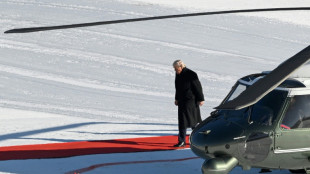
-
 Balkan wild rivers in steady decline: study
Balkan wild rivers in steady decline: study
-
Injured Capuozzo misses out on Italy Six Nations squad

-
 Mourners pay last respects to Italian icon Valentino
Mourners pay last respects to Italian icon Valentino
-
EU parliament refers Mercosur trade deal to bloc's top court

-
 Odermatt seeks first Kitzbuehel victory with eye on Olympics
Odermatt seeks first Kitzbuehel victory with eye on Olympics
-
Italy's Brignone to be rested for Spindleruv Mlyn giant slalom

-
 Alcaraz spearheads big names into Australian Open third round
Alcaraz spearheads big names into Australian Open third round
-
European stocks dip ahead of Trump's Davos speech

-
 Trump flies into Davos maelstrom over Greenland
Trump flies into Davos maelstrom over Greenland
-
EU won't ask Big Tech to pay for telecoms overhaul

-
 Railway safety questioned as Spain reels from twin train disasters
Railway safety questioned as Spain reels from twin train disasters
-
Marcell Jacobs back with coach who led him to Olympic gold

-
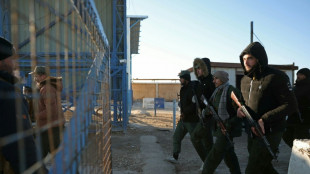 Syria army enters Al-Hol camp holding relatives of jihadists: AFP
Syria army enters Al-Hol camp holding relatives of jihadists: AFP
-
Brook apologises, admits nightclub fracas 'not the right thing to do'

-
 NATO chief says 'thoughtful diplomacy' only way to deal with Greenland crisis
NATO chief says 'thoughtful diplomacy' only way to deal with Greenland crisis
-
Widow of Iran's last shah says 'no turning back' after protests

-
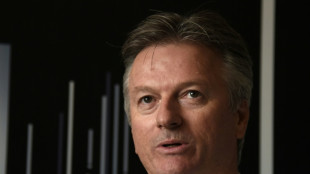 Waugh targets cricket's 'last great frontier' with European T20 venture
Waugh targets cricket's 'last great frontier' with European T20 venture
-
Burberry sales rise as China demand improves

-
 Botswana warns diamond oversupply to hit growth
Botswana warns diamond oversupply to hit growth
-
Spaniard condemns 'ignorant drunks' after Melbourne confrontation

-
 Philippines to end short-lived ban on Musk's Grok chatbot
Philippines to end short-lived ban on Musk's Grok chatbot
-
Police smash European synthetic drug ring in 'largest-ever' op

-
 Japan to restart world's biggest nuclear plant Wednesday
Japan to restart world's biggest nuclear plant Wednesday
-
South Korean ex-PM Han gets 23 years jail for martial law role

-
 Alcaraz, Sabalenka, Gauff surge into Australian Open third round
Alcaraz, Sabalenka, Gauff surge into Australian Open third round
-
Over 1,400 Indonesians left Cambodian scam groups in five days: embassy
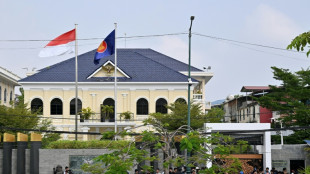
-
 Raducanu to 're-evaluate' after flat Australian Open exit
Raducanu to 're-evaluate' after flat Australian Open exit
-
Doncic triple-double leads Lakers comeback over Nuggets, Rockets down Spurs

-
 Bangladesh will not back down to 'coercion' in India T20 World Cup row
Bangladesh will not back down to 'coercion' in India T20 World Cup row
-
Alcaraz comes good after shaky start to make Australian Open third round

-
 Trump departs for Davos forum again after switching to new plane: AFP
Trump departs for Davos forum again after switching to new plane: AFP
-
Impressive Gauff storms into Australian Open third round

-
 Dazzling Chinese AI debuts mask growing pains
Dazzling Chinese AI debuts mask growing pains
-
Medvedev battles into Melbourne third round after early scare

-
 Denmark's Andresen upstages sprint stars to take Tour Down Under opener
Denmark's Andresen upstages sprint stars to take Tour Down Under opener
-
Turkey's Sonmez soaks in acclaim on historic Melbourne run

-
 Sheppard leads Rockets to sink Spurs in Texas derby
Sheppard leads Rockets to sink Spurs in Texas derby
-
Sabalenka shuts down political talk after Ukrainian's ban call

-
 Trump's plane returns to air base after 'minor' electrical issue: White House
Trump's plane returns to air base after 'minor' electrical issue: White House
-
Barcelona train crash kills 1 in Spain's second deadly rail accident in days

-
 North produces enough nuclear material a year for 10-20 weapons: S. Korea president
North produces enough nuclear material a year for 10-20 weapons: S. Korea president
-
Japan ex-PM Abe's alleged killer faces verdict
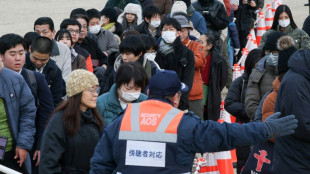
-
 Climate change fuels disasters, but deaths don't add up
Climate change fuels disasters, but deaths don't add up
-
Stocks stable after tariff-fuelled selloff but uncertainty boosts gold

-
 What growth?: Taiwan's traditional manufacturers miss out on export boom
What growth?: Taiwan's traditional manufacturers miss out on export boom
-
'Super-happy' Sabalenka shines as Alcaraz gets set at Australian Open

-
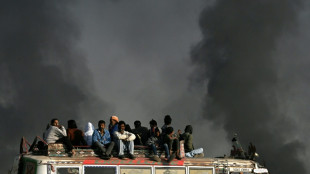 With monitors and lawsuits, Pakistanis fight for clean air
With monitors and lawsuits, Pakistanis fight for clean air
-
Sabalenka sets up potential Raducanu showdown at Australian Open


Sunbears to elephants: life at a Thai wildlife hospital
The patient lay prone on the operating table. An IV line snaking from his left leg, near the wound from the tranquilliser dart that sedated him.
Yong, a pig-tailed macaque rescued from a life harvesting coconuts, was being treated at Thailand's only NGO-run wildlife hospital.
He is one of dozens of animals treated each month at the Wildlife Friends Foundation Thailand (WFFT) facility.
Patients range from delicate sugar gliders intended as pets, to some of the hefty rescued elephants that roam WFFT's expansive facility in Phetchaburi, southwest of Bangkok.
The wide variety can be a challenge, said vet Siriporn Tippol.
"If we can't find the right equipment, we have to DIY use what we already have or modify based on the specifications we need."
She described strapping an extension handle onto a laryngoscope designed for cats and dogs so it could be used during surgery on bears and tigers.
A treatment whiteboard gives a sense of an average day: cleaning a wound on one elephant's tail, assessing another's possible cataract and treating a Malayan sunbear's skin condition.
Yong was in quarantine after rescue -- coconut monkeys often carry tuberculosis or other infectious diseases -- and needed a full health check.
But first, he had to be sedated, with a tranquilliser dart blown from a white tube into his left haunch.
Before long he was slumped over and ready to be carried to hospital.
Blood was taken, an IV line placed and then it was X-ray time, to look for signs of broken bones or respiratory illness.
Next was a symbolic moment: vets cut off the metal rings around the monkey's neck that once kept him connected to a chain.
The operating theatre was the final stop, for a vasectomy to allow Yong to join a mixed troop of rescued monkeys without risk of breeding.
- Out-of-hand hobby -
The light-filled hospital only opened this month, replacing a previous "tiny" clinic, said WFFT founder Edwin Wiek.
"I've always dreamed about having a proper medical facility," he told AFP, over the sound of nearby tigers roaring in grassy enclosures.
With over 900 animals in WFFT's care and a regular stream of emergency arrivals, "we needed really a bigger place, more surgery rooms, a treatment room," he said.
Wiek founded WFFT in 2001 with two macaques and a gibbon. It now spans 120 hectares (297 acres) and houses 60 species.
"That hobby got out of hand," he laughed.
He has long advocated for stronger wildlife protections in a country well-known as a wildlife trafficking hub in part because of its location and strong transport links.
Wiek once had tendentious relations with Thai authorities, even facing legal action, but more recently has become a government advisor.
WFFT is now a force multiplier for the Department of National Parks, Wildlife and Plant Conservation (DNP).
"In many cases, when wild animals from elephants and tigers to macaques are found injured and displaced, we coordinate with WFFT, who assist in rehabilitation and medical care," said DNP wildlife conservation director Chalerm Poommai.
One of WFFT's current campaigns focuses on the estimated thousands of monkeys like Yong trained to pick coconuts on plantations in southern Thailand.
"The animal welfare issue is horrible," said Wiek.
"But another very important point is that these animals actually are taken out of the wild illegally. And that, of course, has a huge impact, negative impact on the survival of the species."
WFFT is working with authorities, the coconut industry and exporters to encourage farmers to stop using monkeys, and switch to shorter trees that are easier to harvest.
There is also work to do equipping the new hospital. A mobile X-ray unit and specialised blood analysis machine are on Siriporn's wishlist.
And Wiek is thinking ahead to his next dream: a forensics lab to trace the origins of the animals confiscated from traffickers.
"The laws are there, we lack the enforcement," he said.
"But with this tool, we could actually do some real damage to these illegal wildlife traffickers."
R.Buehler--VB

